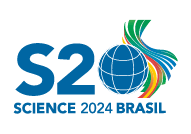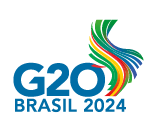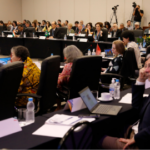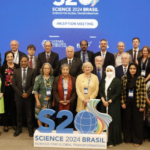Countries with lower incomes in the G20 surpass academic production of richer ones; China surpasses US as leader in the ranking
March 12 | O Globo
Read the article by Emanuelle Bordallo for O Globo, published on March 12:
/i.s3.glbimg.com/v1/AUTH_da025474c0c44edd99332dddb09cabe8/internal_photos/bs/2024/C/y/1xohkQTpCbD5HilBs7gA/s20brasil-jcg0043.jpg)
Science20, an event parallel to the G20 aimed at the scientific community, in Rio de Janeiro — Photo: Marcos André Pinto/ABC Disclosure
The middle and low-income countries of the Group of 20 (G20) have surpassed the academic production of the richest nations, according to a study by Carlos Henrique de Brito Cruz, senior vice president of Elsevier Research Networks and emeritus professor at Unicamp, presented during the 8th edition of Science20 (S20), the G20’s scientific arm in Brazil. Another data point shown by the research is that China, the world’s second-largest economy, now leads the ranking, which until 2020 was led by the United States, currently in second position. Next comes India, which also recently surpassed the production volume of the United Kingdom.
According to Cruz, 80% of scientific publications worldwide have co-authors from one of the G20 countries, and the United States is the main collaborator for 17 of the 18 countries in the forum. For the professor, the discovery shows how “scientific collaboration is now mandatory,” which should inspire exchanges in the S20. Over the past two days, the event brought together representatives from the member countries’ academies of science, scientific organizations, and authorities in Rio de Janeiro.
According to Cruz, Brazil’s investment in science is still moderate compared to other G20 countries: about US$39 billion, combining government, university, corporate, and external contributions. However, one of the challenges is to turn studies into profitable solutions. According to Luciana Santos, Minister of Science, Technology, and Innovation, Brazil is the 13th country with the highest academic production but ranks 49th in innovation.
— Our intelligence and our production do not translate into products and services — Santos told O Globo newspaper..
/i.s3.glbimg.com/v1/AUTH_da025474c0c44edd99332dddb09cabe8/internal_photos/bs/2024/H/z/r15bS4SNWzYwJZGWzGlQ/s20brasil-map0319.jpg)
Luciana Santos, Minister of Science, Technology, and Innovation during the opening of Science20, a G20 engagement group for the academic community — Photo: Marcos André Pinto/ABC Disclosure
The discussion was one of the main topics on the Science20 agenda, which debated challenges in Artificial Intelligence (AI), energy transition, technological inequality, and demographic crises. As part of the G20 Social, a novelty of the Brazilian presidency, the scientific engagement group’s recommendations will be reviewed by heads of state at the Leaders’ Summit in November for the first time. The expectation is that a final document will be prepared by July.
This year, S20 debates were divided into five fronts: artificial intelligence and its impacts on society, health challenges, bioeconomy, energy transition process, and social justice. According to Helena Nader, President of the Brazilian Academy of Sciences (ABC), the event’s host, it is possible to find joint solutions despite geopolitical divisions and economic interests at stake.
— We have everything to create convergence so that civil society can influence the debate at the Leaders’ Summit — Nader told O Globo. — Education and science are the essence of economic growth.
Originally, the G20 — which brings together the world’s 19 largest economies, the European Union, and, since Brazil’s presidency, the African Union — was conceived as an economic discussion forum. However, since the 2008 financial crisis, the event has also addressed broader social, environmental, and political issues. The unprecedented Brazilian presidency intends to focus even more on these aspects, establishing three priorities in this direction: combating hunger, poverty, and inequality, sustainable development, and global governance reform.
For the government of President Luiz Inácio Lula da Silva, the rotating presidency of the G20 has been used as a foreign policy tool to build alliances and reposition Brazil as a global leader. Additionally, it is seen as an opportunity to bring thorny issues to the table at a time when polarization around conflicts in Ukraine and Gaza has hindered debate in important multilateral bodies such as the United Nations.
Minister Luciana Santos participated in the forum’s opening on Monday and advocated for different economic strategies to foster science and combat technological inequality.
— I wholeheartedly agree with a macroeconomic debate. [Without it] it is not possible for us to advance in large investments in science and technology, which are increasingly growing due to the challenges of technological revolution, climate change, and inequality — Santos said.
Central Debates
One of the main topics discussed at the event was the advancement of artificial intelligence, whose electoral use was regulated two weeks ago by the Supreme Federal Court (STF). Fernanda de Negri, Director of Sector Studies at Ipea and one of the S20 speakers, advocated for international regulation that addresses the use of data, especially private data, by these new technologies, and warned about the risks of regional initiatives alone. For her, the focus of restrictions should be on digital platforms, through which manipulations created by AI systems are disseminated.
“We should create regulations on data usage that are more internationally shared. Otherwise, each country will end up creating its own regulations, and as we eventually prevent the use of data to generate solutions in our country, nothing prevents multinational companies from using the same information to generate AI solutions,” she explains, noting that some regulations may widen technological inequality. “Regulating not only prevents [the use of AI], because it is a new technology, but it allows several countries to use and produce artificial intelligence solutions.”
/i.s3.glbimg.com/v1/AUTH_da025474c0c44edd99332dddb09cabe8/internal_photos/bs/2024/E/S/GF8G6AQ8ePSVsFNHaCyg/s20brasil-jcg9964.jpg)
Fernanda de Negri, Director of Sectoral Studies at Ipea, at Science20 — Photo: Marcos André Pinto / ABC Disclosure
Future presidency
The Academy of Sciences of South Africa, the country that will preside over the G20 next year, stated that communication will be one of its focuses, and the multidimensional approach to crises will be prioritized in formulating suggestions to leaders.
“As scientists, we need to be much more involved so that the studies and recommendations we bring are communicated effectively. Otherwise, we will be divergent in separate poles,” said the Executive Director of the Academy of Sciences of South Africa, Himla Soodyall. “We need to show that science can guide policy formulation in various ways because the ultimate goal is to improve the quality of life for all citizens.”
/i.s3.glbimg.com/v1/AUTH_da025474c0c44edd99332dddb09cabe8/internal_photos/bs/2024/4/y/NHOEC6RwaatERYepiSFw/s20brasil-map0277.jpg)
Stephanie Burton, Interim president of the Academy of Sciences of South Africa at Science20 — Photo: Marcos André Pinto / ABC Disclosure
“We don’t see all challenges as specific topics, but rather as a single type of challenge, which is complicated and implies many different approaches. That’s why maybe that’s our idea, the suggestion to involve many groups, topics, and different disciplines to contribute to an approach to international challenges,” Burton said.
